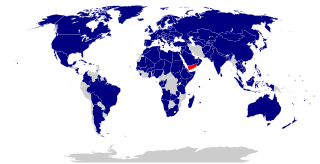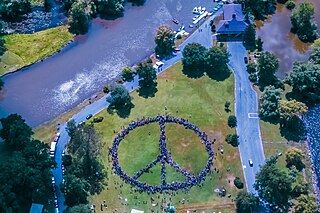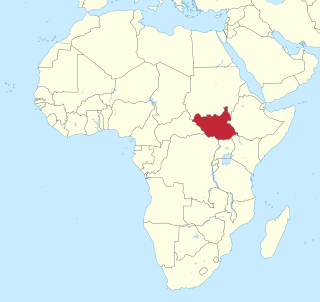
The foreign relations of Yemen are the relationships and policies that Yemen maintains with other countries. It is a member of the United Nations, the Arab League, and the Organisation of Islamic Cooperation. Yemen participates in the nonaligned movement. The Republic of Yemen accepted responsibility for all treaties and debts of its predecessors, the YAR and the PDRY. Additionally, India acceded to the Nuclear Non-Proliferation Treaty and has stressed the need to render the Middle East region free of nuclear and other weapons of mass destruction.

Stockholm International Peace Research Institute (SIPRI) is an international institute based in Stockholm. It was founded in 1966 and provides data, analysis and recommendations for armed conflict, military expenditure and arms trade as well as disarmament and arms control. The research is based on open sources and is directed to decision-makers, researchers, media and the interested public.

Although there has been a large degree of integration between European Union member states, foreign relations is still a largely intergovernmental matter, with the 27 states controlling their own relations to a large degree. However, with the Union holding more weight as a single entity, there are at times attempts to speak with one voice, notably on trade and energy matters. The High Representative of the Union for Foreign Affairs and Security Policy personifies this role.
The concepts of security sector governance and reform generally refer to a process in Western-based international development and democratization to amend the security sector of a state towards good governance and its principles, such as freedom of information and the rule of law.
Peaceworkers UK (PWUK) is part of the Peace-building Issues Programme of International Alert. Previously an independent non-governmental organisation, PWUK became part of International Alert in 2006. PWUK focuses on raising standards in the field of conflict prevention, crisis management and peace-building through an integrated programme of research, training, assessment and recruitment. It is led by a Director who has a PhD in Peace Studies and over 20 years management experience in the field.

Peacebuilding is an activity that aims to resolve injustice in nonviolent ways and to transform the cultural and structural conditions that generate deadly or destructive conflict. It revolves around developing constructive personal, group, and political relationships across ethnic, religious, class, national, and racial boundaries. The process includes violence prevention; conflict management, resolution, or transformation; and post-conflict reconciliation or trauma healing before, during, and after any given case of violence.
The Forum on Early Warning and Early Response (FEWER) was established in 1997 as a non-profit organization in response to the Rwandan genocide in 1994. Focusing on conflict early warning, the brainchild of Kumar Rupesinghe, Howard Adelman, and Sharon Rusu, became a network of 35 organisations worldwide and catalysed the creation of early warning and response networks in the Caucasus, the Great Lakes region of Africa, and west Africa (led by West Africa Network for Peacebuilding.

Humanitarian Accountability Partnership International, established in 2003, was the humanitarian sector's first international self-regulatory body. A multi-agency initiative working to improve the accountability of humanitarian action to people affected by disasters and other crises, HAP members ranged from organisations with a mandate for emergency relief and development activities to institutional donors. The organisation aimed to strengthen accountability towards those affected by crisis situations and to facilitate improved performance within the humanitarian sector. The ultimate goal of the organisation was to uphold the rights and the dignity of crisis-affected populations across the world.
swisspeace is a practice-oriented peace research institute located in Basel, Switzerland. It aims to contribute to the improvement of conflict prevention and conflict transformation by supporting Swiss and international actors in their peacebuilding activities.

According to the British government, the United Kingdom of Great Britain and Northern Ireland and the Kingdom of Saudi Arabia have long been close allies. Relations between the two countries date back to 1848, when Faisal bin Turki, ruler of the Second Saudi state, formally requested the support of the British Political Resident in Bushire for his representative in Trucial Oman.
Environmental peacebuilding examines and advocates environmental protection and cooperation as a factor in creating more peaceful relations. Peacebuilding is both the theory and practice of identifying the conditions that can lead to a sustainable peace between past, current or potential future adversaries. At the most basic level, warfare devastates ecosystems and the livelihoods of those who depend on natural resources, and the anarchy of conflict situations leads to the uncontrolled, destructive exploitation of natural resources. Preventing these impacts allows for an easier movement to a sustainable peace. From a more positive perspective, environmental cooperation can be one of the places where hostile parties can sustain a dialogue, and sustainable development is a prerequisite for a sustainable peace.

United States aid to Sudan has three key objectives: a definitive end to conflict, gross human rights abuses, and genocide in Darfur; implementation of the north–south Comprehensive Peace Agreement that results in a peaceful post-2011 Sudan, or an orderly path toward two separate and viable states at peace with each other; and ensuring that Sudan does not provide a safe haven for international terrorists. Sudan has experienced two civil wars since 1955, the second of which lasted 22 years. During this time, the U.S. was the largest provider of foreign aid to Sudan, largely focused on humanitarian aid through the U.S. Agency for International Development. Sudan is listed as the U.S. government's highest priority in Africa due to "its importance for counter-terrorism and regional stability, as well as the magnitude of human rights and humanitarian abuses" U.S. foreign aid to Sudan has begun to see some positive indicators of performance although critical reaction has said that aid to Sudan is neither strategic nor focused.

Danish Demining Group (DDG) is the Human Security Unit under the Danish Refugee Council (DRC), specialised in clearing landmines and unexploded ordnance and reducing armed violence.

United Nations Security Council Resolution 1996, adopted unanimously on July 8, 2011, after welcoming the independence of South Sudan from Sudan, the Council established the United Nations Mission in the Republic of South Sudan (UNMISS) for an initial period of one year.
Concordis International is a non-profit organization that works alongside and in support of official peace processes, where they exist, to improve the potential for lasting peace. The organization has headquarters in London and country-offices in the Central African Republic and in Nouakchott, Mauritania. Concordis' historical roots are in peacebuilding work by the Newick Park Initiative in South Africa (1986–91) and in post-genocide Rwanda (1994-7).
Relief International is a humanitarian non-profit agency that provides emergency relief, economic rehabilitation, and development assistance services to vulnerable communities worldwide. Relief International UK is non-political and non-sectarian in its mission. It is based in Washington, D.C., and London.

The Foreign Ministry is the government body in the Sultanate of Oman responsible for organising and directing Oman's relations with other countries and with regional and international organisations.
Gender and security sector reform is an emerging subfield of security sector reform (SSR) that is both practical and conceptual. SSR generally is a comprehensive framework within which all or part of a state's security sector undergoes a process of transformation in order to bring it more into line with principles such as democratic oversight, good governance and the rule of law. The overall objectives of SSR programmes – as defined both by the state in question and any international donors supporting the process – tend to include improving service delivery, enhancing local ownership and ensuring the sustainability of security sector institutions. As gender-specific approaches take into account the specific needs of men, women, boys and girls through gender mainstreaming and by promoting the equal participation of people of all genders in decision-making processes, states and international organisations increasingly consider them to be a necessary component of SSR programmes.

The Office of the Special Representative of the Secretary-General on Sexual Violence in Conflict (OSRSG-SVC) is an office of the United Nations Secretariat tasked with serving the United Nations' spokesperson and political advocate on conflict-related sexual violence, the Special Representative of the Secretary-General on Sexual Violence in Conflict (SRSG-SVC). The Special Representative holds the rank of Under-Secretary-General of the United Nations and chairs the UN Action Against Sexual Violence in Conflict. The mandate of the SRSG-SVC was established by Security Council Resolution 1888, introduced by Hillary Clinton, and the first Special Representative, Margot Wallström, took office in 2010. The current Special Representative is Pramila Patten of Mauritius, who was appointed by United Nations Secretary General António Guterres in April 2017. The work of the SRSG-SVC is supported by the United Nations Team of Experts on the Rule of Law/Sexual Violence in Conflict, co-led by the Department of Peacekeeping Operations (DPO), Office of the High Commissioner for Human Rights (OHCHR) and the United Nations Development Programme (UNDP), also established under Security Council Resolution 1888.
Foreign aid for gender equality in Jordan includes programs funded by governments or non-governmental organizations (NGOs) that aim to empower women, close gender based gaps in opportunity and experience, and promote equal access to education, economic empowerment, and political representation in the Hashemite Kingdom of Jordan.











